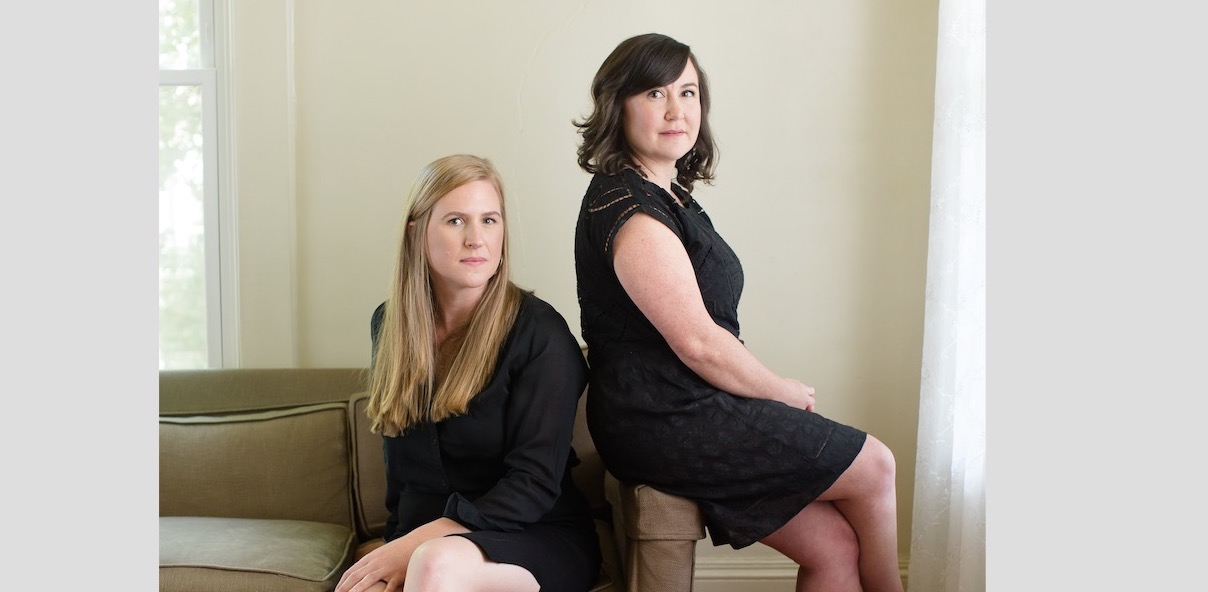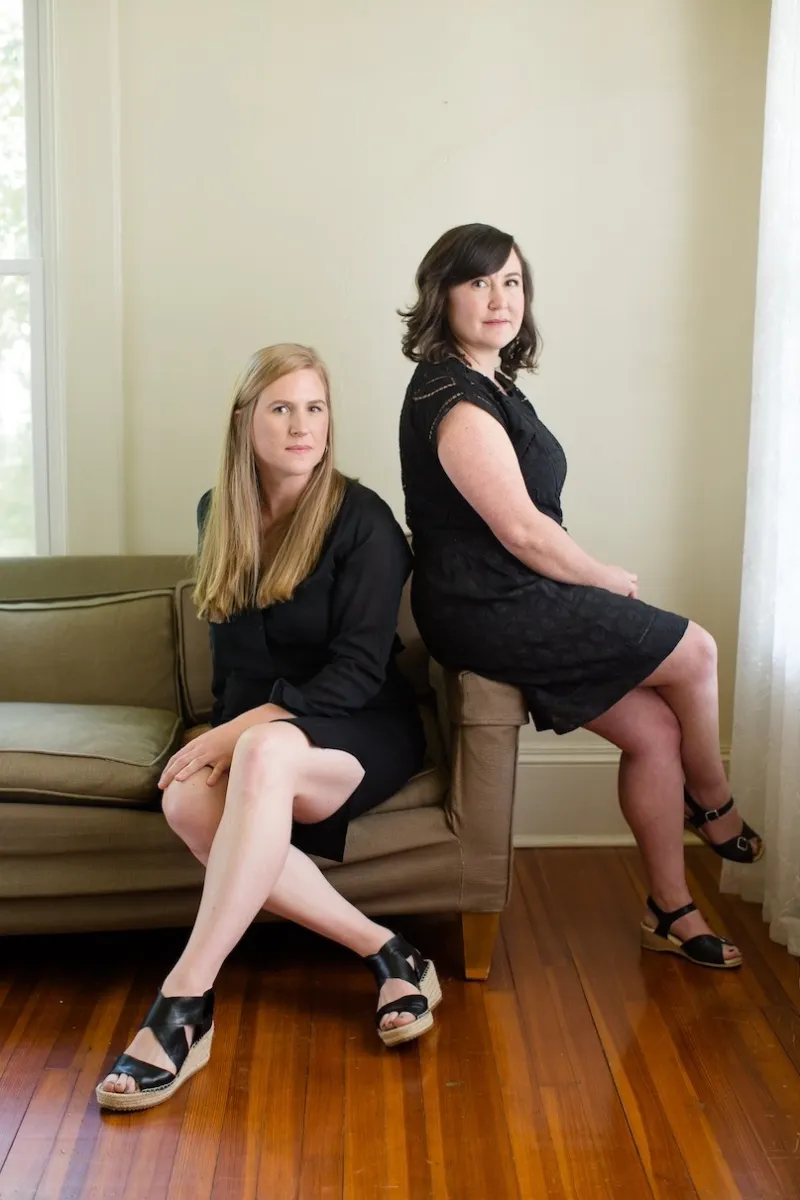Interview: Criminal and This is Love Co-Founders “Proud to Be a Woman-Run Shop”


Portraits of Phoebe Judge, Lauren Spohrer and Nadia Wilson, the brains behind the Criminal podcast in Durham, NC on Thursday, June 15, 2017. (Justin Cook)
I’m about to be that person who recommends another crime podcast to you. Yes, I know, there are a lot of true crime podcasts out there, and it’s understandable that we can’t listen to all the ghastly, bloody, and riveting stories out there. If you haven’t already been listening to it, you should definitely check out Criminal.
What sets Criminal apart from the other shows? I had a chance to talk to co-founders Lauren Spohrer and Phoebe Judge about their podcast, a series that’s less “if it bleeds, it leads” and a bit more “high profile dog napping in the 50s” or “woman in 1944 convicted under a 200-year-old Witchcraft Act“. Inspired by shows like 99% Invisible, Love + Radio, This American Life, and the longform crime reporting The New Yorker has done over the years, Criminal will takes you on fascinating journeys that can end up anywhere with “criminal” as loose term. As the description points out, they’re stories “of people who’ve done wrong, been wronged, and/or gotten caught somewhere in the middle”
The team has since launched This is Love, a podcast that collects love stories and investigates “life’s most persistent mystery.” The first episode completely, by surprise, brought me to tears.
I interviewed Spohrer and Judge over email about how they find so many intriguing stories, and what it’s like to be a women in podcasting.
Tell me more about how you choose the stories that you share on Criminal and This Is Love. There are always so many interesting and obscure stories in Criminal particularly.
We’ve worked in public radio for a long time. We’re used to digging all over the place to find stories that excite us. We read old books from library sales, read scholarly journals, read local newspapers from tiny towns we’ve never been to, and most importantly, we find great stories just by talking to people. Most of the stories in the first season of This is Love came from conversations with friends and strangers we met at parties. Sometimes we type random words into a search engine and let ourselves go down rabbit holes. Listeners send great ideas, too! We know we have a good story on our hands when it keeps generating new questions the deeper into it we dig.
Can you talk a bit about the importance of female voices in the podcasting space?
We’re really proud to be a woman-run shop. Not only is Criminal hosted and produced by women, but we own the company, too — which is unusual. So many of the shows we listen to are hosted and produced by women that sometimes we forget the space is still dominated by men. But it’s striking when you attend a festival. We’ve performed at podcast festivals where we could count the number of women on one hand.
Why do you think the podcast format lends itself especially well to the stories you share?
When we worked for public radio shows, we’d have to compress someone’s story into 5-10 minutes. It’s such a luxury to let a story be as long or as short as it wants to be. It gives us the flexibility to get a bit more personal with someone, to joke with them, and to let them tell side-stories that might not make it into a traditional radio story. And podcasting gives you the space to experiment and try new things simply because you’re curious. You don’t need to get the greenlight from a network. You can just get to work. That’s how we started Criminal — working at night and on the weekends — just because we wanted to see what was possible.
Tell me about the start of This Is Love. At first it seems like an intense shift from Criminal, but when you listen to the two there’s a real affinity between them, I think.
We’ve been thinking of them as “siblings.” The love stories are tender and sincere, and less “plot-driven” than most of the work we do for Criminal. It feels like the loveliest experiment. Both shows tackle an incredibly broad genre (crime, love) and then anchor the episodes in the particularities of someone’s experience. We’re sincerely just trying to make stuff we want to listen to. We’re using love and crime as lenses to learn more about people.
Phoebe Judge hosts both shows, obviously, but in This is Love we see a bit more of her personality. Both shows make use of original compositions from Blue Dot Sessions, and are mixed and mastered by the great Rob Byers. So there is definitely a strong aesthetic connection.
—————————
I can often get intimidated or overwhelmed by podcasts that already have a bunch of episodes, so I asked Lauren and Phoebe for their favorite episodes. For people just encountering This is Love or Criminal, here are some good places to start:
Criminal
• Money Tree
• Jolly Jane
• Melinda and Judy / Melinda and Clarence
(this one’s a two parter!)
This is Love
• Something Large and Wild
• Eight Thousand Miles
• Always Tomorrow
Or, if you’re in NYC either on the 10th or the 12th of May, you can catch them at Radiotopia Live. Info here.
(image: Justin Cook)
Want more stories like this? Become a subscriber and support the site!
—The Mary Sue has a strict comment policy that forbids, but is not limited to, personal insults toward anyone, hate speech, and trolling.—
Have a tip we should know? [email protected]